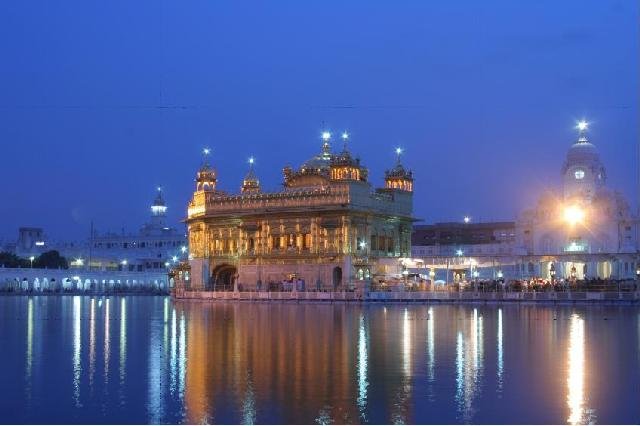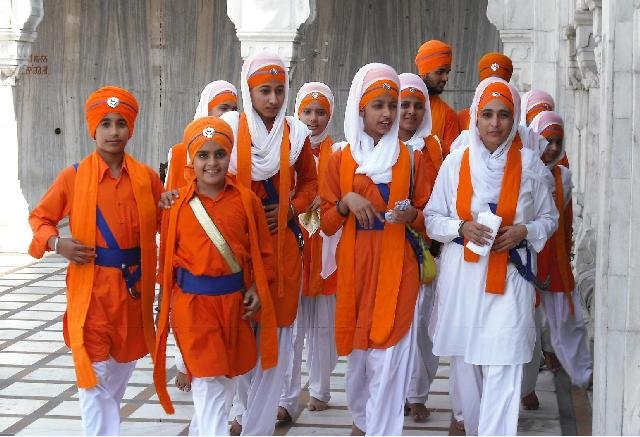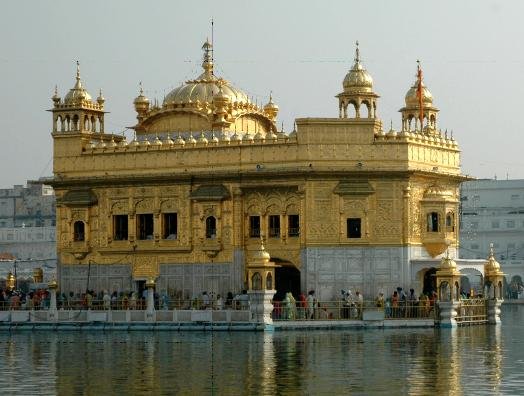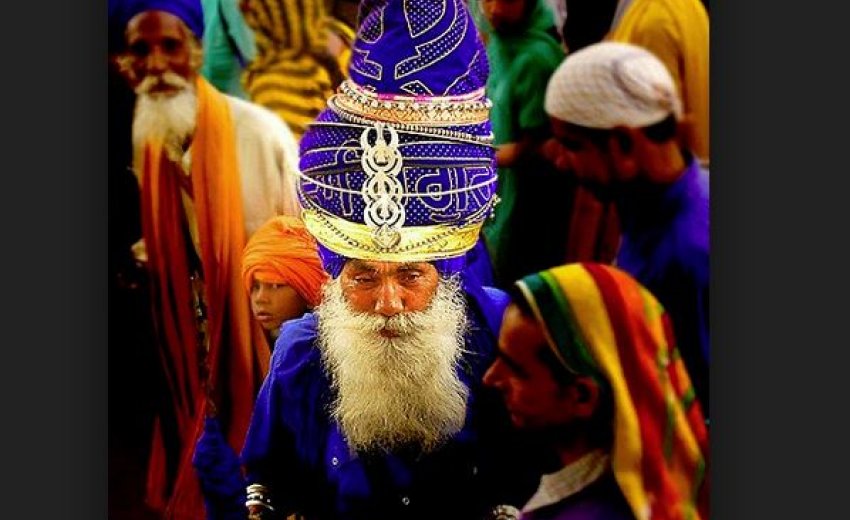 As subtle beings we are affected by many things, one of these is colour. The colours of the clothes we wear, the food we eat and those we see in our environment all have an effect on our emotions and wellbeing. Below are some meanings of the Khalsa colours from a colour therapy perspective, exploring the many ways in which they influence us as Sikhs in our personal and spiritual development.
As subtle beings we are affected by many things, one of these is colour. The colours of the clothes we wear, the food we eat and those we see in our environment all have an effect on our emotions and wellbeing. Below are some meanings of the Khalsa colours from a colour therapy perspective, exploring the many ways in which they influence us as Sikhs in our personal and spiritual development.
The colour yellow has to do with our sense of self, our identity - who we are. It brings forth the emotions of happiness and joy. Yellow is most strongly associated with the brain and mental faculties, giving rise to focus and clarity of thought, it is helpful to learning and the gathering of knowledge. In general terms; knowing your direction and what you are doing in life.
 Blue is a beautiful colour, seen in the calming water of Sarovars and the Bana of Gursikhs. It nurtures faith and trust. Blue is the colour of peace. It supports the development of verbal communication skills.
Blue is a beautiful colour, seen in the calming water of Sarovars and the Bana of Gursikhs. It nurtures faith and trust. Blue is the colour of peace. It supports the development of verbal communication skills.
Royal Blue is the colour of sensitivity. The deep blue of the night sky during Amrit Vela enhances intuition, resulting in intuitive thoughts and insights. It is the colour of honesty, of being reliable. Presence and authority are other qualities inspired by this colour.
 Orange appears in the form of our Nishan Sahibs, the cholas worn by Panj Pyaray and Sikh turbans. This is the colour of deep joy and bliss. It absorbs shocks, nasty experiences and trauma. It’s about letting go of what holds us back or what is not helpful. Orange is the colour of connection, a sense of community, belonging and social aspects of being.
Orange appears in the form of our Nishan Sahibs, the cholas worn by Panj Pyaray and Sikh turbans. This is the colour of deep joy and bliss. It absorbs shocks, nasty experiences and trauma. It’s about letting go of what holds us back or what is not helpful. Orange is the colour of connection, a sense of community, belonging and social aspects of being.
 The colour gold features strongly in Sikh surroundings, from Harmandir Sahib at Amritsar to the domes of Gurdwaras around the world, as well as their interiors. This colour soothes anxiety and represents deep happiness. Gold is healing. It is linked to inner wisdom and may be instrumental in helping people find answers to their life situations.
The colour gold features strongly in Sikh surroundings, from Harmandir Sahib at Amritsar to the domes of Gurdwaras around the world, as well as their interiors. This colour soothes anxiety and represents deep happiness. Gold is healing. It is linked to inner wisdom and may be instrumental in helping people find answers to their life situations.
 White occupies the largest space in the Sikh landscape especially in India where white marble has been used extensively in the architecture of Gurdwara buildings and their grounds. It is one of the common colours worn by Gursikh men and women. White is said to contain the whole light spectrum. Its characteristics are strength, radiance and purity.
White occupies the largest space in the Sikh landscape especially in India where white marble has been used extensively in the architecture of Gurdwara buildings and their grounds. It is one of the common colours worn by Gursikh men and women. White is said to contain the whole light spectrum. Its characteristics are strength, radiance and purity.
Black is a colour which grounds and helps people to feel deeply rooted. I once heard an interesting story told by an old relative. She was eighteen at the time of the Nankana Sahib massacre in 1922.  Her memory of what happened was so vivid; it was like hearing a news report of the incident. Being a feisty young woman she had travelled to Nankana Sahib the day following the massacre. She said Sikhs at that time generally didn’t wear much black; however in the days after the killings many dyed their clothes and turbans black. The massacre would have sent shock waves through the Sikh community; it’s interesting how Sikhs intuitively turned to the colour black which would have had a stabilising effect during a time of anguish.
Her memory of what happened was so vivid; it was like hearing a news report of the incident. Being a feisty young woman she had travelled to Nankana Sahib the day following the massacre. She said Sikhs at that time generally didn’t wear much black; however in the days after the killings many dyed their clothes and turbans black. The massacre would have sent shock waves through the Sikh community; it’s interesting how Sikhs intuitively turned to the colour black which would have had a stabilising effect during a time of anguish.
So what happens when we combine all these colours together, what kind of image do they create?
It’s a person who has a strong sense of themselves, is clear about their identity and who they are. Has deep faith and trust in God. Experiences joy, bliss, happiness and peace. It’s someone who is considerate of others. A confident person, able to handle life’s difficulties and apply focused thinking and action. Who possesses wisdom and knowledge and is on a continuous path of learning. A responsible individual who participates on a social level. A dependable, honest person. Strong and grounded. Having purity in thought and deed. A Khalsa.
 Darshan Kaur is based in south-east England and works as an NLP Therapist, providing help for a range of different issues including weight management, stress and relationships.
Darshan Kaur is based in south-east England and works as an NLP Therapist, providing help for a range of different issues including weight management, stress and relationships.
She also delivers personal development training courses to private and public sector organisations.
[email protected]
www.darshankaur.co.uk
